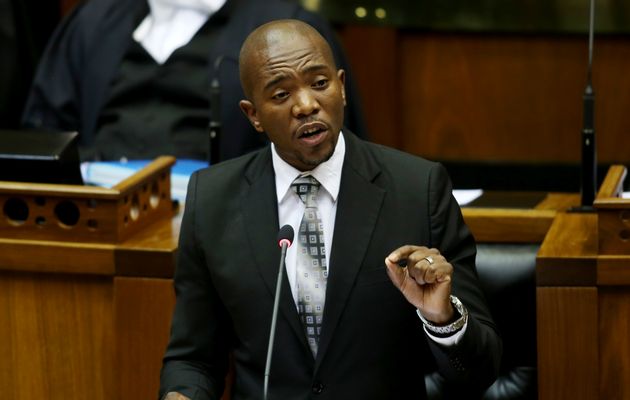
AFRICAN leadership has become a “boys’ club” of former liberation movements intent on holding on to power at all costs.
guest column:Mmusi Maimane
In a week in which the world was intensely focused on the United States presidential election between Donald Trump and Joe Biden, political unrest is intensifying on our very own continent and is being met by detached platitudes from the African Union (AU) under Cyril Ramaphosa’s chairmanship.
It appears each week, as Africans, we are forced to witness the undoing and undermining of democracy on our continent.
The locations change, yet the story is similar in all cases. Liberation movements using violence and suppression to hold on to power, regardless of the will of the people.
This past week, Ivory Coast was the latest addition to this unfolding story as the country held its presidential election.
The election was marred by violence, killings and an eventual boycott by opposition voters. Over 30 civilians were killed in protests. But that is not where the matter ends.
According to the United Nations High Commissioner for Refugees (UNHCR) more than 3 000 people have fled Ivory Coast to seek refuge in neighbouring countries such as Liberia, Togo and Ghana.
- Chamisa under fire over US$120K donation
- Mavhunga puts DeMbare into Chibuku quarterfinals
- Pension funds bet on Cabora Bassa oilfields
- Councils defy govt fire tender directive
Keep Reading
In a brief two-paragraph joint statement with Ecowas and the United Nations, the AU called for Ivorians to accept the result of the election, and, well, move on.
This is not only impotent leadership; it conveniently ignores the humanitarian crisis that is unfolding in the region as a result of the election which saw Alassane Ouattara win a third term with over 94% of the vote.
The apposite point here is that such occurrences are constantly and increasingly unfolding in Africa and the AU is either unwilling or unable to tackle the matter in an effective manner.
It is now over 270 days since Ramaphosa assumed the role of AU chair.
During that time, we have witnessed a spate of human rights abuses — illegal detentions, torture and suppression of rights — that have attracted international attention.
From #EndSARS in Nigeria, to human trafficking, to the politically-motivated arrest of the Zanzibar presidential candidate, the human rights abuses continue unabated.
The AU has failed “to promote and protect human rights on the continent” as per Article 3(h) of the Constitutive Act of the African Union.
This is because African leadership has become a “boys’ club” of former liberation movements intent on holding on to power at all costs.
And the story for most post-colonial nations in Africa is the same.
First is the era of colonial rule — unjust and exploitative. Then comes independence along with a new, democratically elected government.
And then follows years, even decades, of oppression by the very same people who were meant to deliver freedom.
This is the story of our continent: liberation movements that fail in their role as governing parties.
We have seen, time and time again, the liberators come to power amid pomp and fanfare, only to bow to the temptations of patronage and corruption.
We have seen Big Man presidents amassing wealth on a scale unimaginable to ordinary citizens.
We have seen decades of one-party rule, across the length and breadth of our continent obliterate any sense of accountability to the people.
This is why I have called for an urgent meeting of the African Commission to intervene in the rapid escalation of human rights abuses across Africa.
This quasi-judicial body is tasked with holding African governments to account in relation to their human rights obligations as parties to the African Charter and we implore it to formally meet — whether virtually or in-person — to urgently address the myriad abuses in several member States.
As Zimbabwe’s Nelson Chamisa, Tanzania’s Zitto Kabwe, Uganda’s Bobi Wine, Zambia’s Hakainde Hichilema and many others across the African continent stand up to dictators and continue the fight for democracy, they require the institutional support of the very bodies mandated to do so.
Now is the time to end the cycle. Africa requires fresh, young and able leadership without any ties to the liberation movements of the past.
We acknowledge their contribution to our continent, but we now boldly proclaim it’s time to break with the past and commit to the future. This article first appeared in the Daily Maverick











